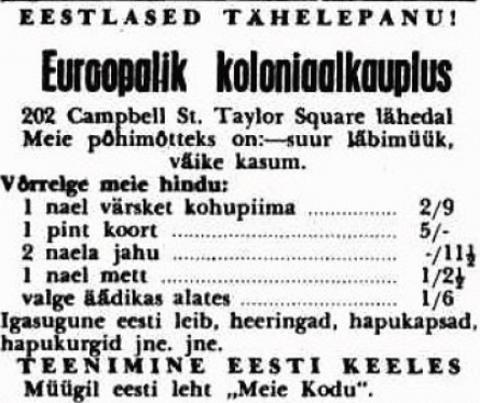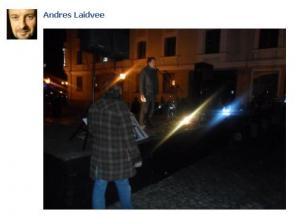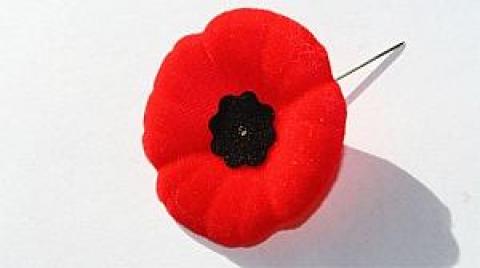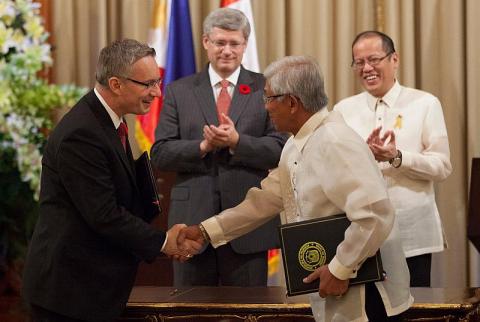Yesterday, on the closing day of its work the 4th World Congress of Finno-Ugric Peoples states that the EU membership of three Finno-Ugric states has opened up new perspectives for the Finno-Ugric relations. As a
result of this, more efficient co-operation is possible within the EU, among the Finno-Ugric peoples and the Russian Federation.
The participants suggested regular consultations in the framework of Inter-Parliamentary Union (IPU), the Parliamentary Assemblies of the Council of Europe, the Organisation for Security and Co-operation in Europe (OSCE), and the European Parliament.
The World Congress states that the primary objective of the Congress is the preservation and development of the Finno-Ugric peoples and their cultures as part of the heritage of the whole mankind. The rights of national
minorities are not a question of a country's domestic policy but also of the whole international community. Therefore, it is important, in addition to including the international human rights standards and the rights of
national minorities into national legislations, to use mechanisms of international legal instruments which do not require ratification and are directly binding.
There has been a reduction in the number of population of most of the Finno-Ugric and Samoyed peoples, and the sphere of use of their languages is decreasing. It is, above all, the younger generation that has suffered where it is deprived of opportunities of socialisation in their own national cultures. Taking into account the existing situation, the Congress has outlined a number of measures in different fields of vital importance for
the Finno-Ugric and Samoyed peoples.
The Udmurtian Delegation expressed some doubts concerning the effectiveness of the work of the Consultative Committee, and suggested that the Congress should examine more closely the work of the Consultative Committee of the Finno-Ugric Peoples.
The Consultative Committee of Finno-Ugric Peoples re-elected Mr. Valeri Markov to chair the Committee.
The Khanty-Mansy Autonomous District has expressed its willingness to host the next World Congress of Finno-Ugric peoples in the year 2008.
For additional information, see information http://kongress.ugri.info/eng/
**********
RESOLUTION
OF THE 4TH WORLD CONGRESS OF FINNO-UGRIC PEOPLES
The 4th World Congress of Finno-Ugric Peoples declares that its primary objective is the preservation and development of the Finno-Ugric peoples and
their cultures as part of the heritage of the whole mankind. The World Congress is aware that the resolution of the problems of assimilation and
loss of national identity mainly depends on the policy of states and the attitude of young people to their culture, language and history.
The Congress states that the protection of human rights, and the rights of indigenous peoples and national minorities is not a question of the country's domestic policy only but also of the whole international community.
Therefore it is important, in addition to including the international human rights standards and the rights of national minorities into national legislations, to use the mechanisms of international legal instruments which
do not require ratification by states and are directly binding.
Of late, there has been a reduction in the number of population of most of the Finno-Ugric and Samoyed peoples, and the sphere of use of their languages is decreasing. It is, above all, the younger generation that has suffered where it is deprived of opportunities of socialisation in their own national cultures.
Taking into account the existing situation, the Congress considers it necessary to take the following measures:
In the field of ethnopolitics and law
1. The Congress entrusts the Consultatitve Committee with approaching the Commissionaire on Human Rights of the Council of Europe with a request to set up a permanent forum on the issues of indigenous peoples and national minorities in Europe.
2. The Congress commissions the Consultative Committee to act as the coordinator for monitoring the international obligations concerning the protection of human rights, and the rights of indigenous peoples and
national minorities in the countries of residence of Finno-Ugric and Samoyed peoples.
3. The Congress calls on Hungary, Russia, Finland, Estonia, and other states where Finno-Ugrians have been living traditionally, to ratify the ILO Convention (No.169) concerning Indigenous and Tribal Peoples in Independent Countries. Before the above Convention is ratified, it is necessary to improve the legislative framework for ensuring the rights specified therein
and, above all, the right to use natural resources including minerals.
4. The Congress commissions the Consultative Committee of Finno-Ugric Peoples to strengthen cooperation with international organizations dealing
with human rights, and the rights of national minorities and indigenous peoples, proactively involving young people into the process.
5. The Congress commissions the Consultative Committee to establish a network of information and legal centres for studying national legislations and international regulations on human rights, and the rights of indigenous peoples and national minorities.
6. The Congress is concerned about the lack of a federal state body for coordinating the ethnic and interethnic relations in such a multinational state as Russia, and calls on the Government of the Russian Federation to re-establish the Ministry for Ethnic Affairs.
7. The Congress expresses it concern about the processes entailing the elimination of national autonomous formations. It commissions the Consultative Committee to keep track of the implications of the unification of the Permian Komi Autonomous District and the Perm Oblast.
In the field of languages and education:
1. The Congress considers that the rights of Finno-Ugric and Samoyed peoples should be based on international regulations including the European Charter for Regional or Minority Languages, and calls on the states which have not ratified the above document to do it as soon as possible.
2. The Congress calls the parliaments and governments of Hungary, Russia, Finland, Estonia, and other countries where Finno-Ugrians and Samoyeds have
being living traditionally, to continue cooperation in the field of state policy of support to the languages and cultures of the Finno-Ugric and Samoyed peoples.
3. The Congress commissions the Consultative Committee to promote the setting-up of a database on the positive experience in the educational and training and bringing-up process, and the introduction of such experience for teaching native languages to children using advanced training technologies.
4. The Congress encourages the activities aimed at training and retraining personnel for the Finno-Ugric and Samoyed regions based on the leading educational centres of Hungary, Russia, Finland, and Estonia. It draws the attention of the administrations of these regions to the need to more effectively use the potential of the ethnic personnel.
5. The Congress stresses the continuing loss of their native languages by Finno-Ugric and Samoyed minorities. To preserve peoples, it is not enough to
teach the native language as a separate subject. It is necessary to expand the network of national schools, and the first step, to increase the number of hours provided in the curriculum for teaching the national language.
6. The Congress expresses its disagreement with the practice of closing of the so-called small schools in the habitat of the Finno-Ugric minorities.
In the field of culture:
1. The Congress considers it necessary to continue the practice of international folk, ethnofuturistic and theatre festivals, days of kindred peoples, celebration of memorable dates and anniversaries.
2. The Congress commissions the Consultative Committee to render assistance in publishing books in the Uralic family languages.
3. The Congress recommends intensifying the work of carrying out youth activities for the purpose of studying the languages and cultural heritage, and learning modern patterns of folk arts.
4. The Congress considers it necessary to preserve the traditional culture and transfer it to the younger generations using advanced technical facilities.
In the field of public health, demography, and ecology:
5. The Congress emphasizes that the state should ensure for everybody the right to obtain representative information on his or her ethnic group in accordance with the standards of state statistics.
6. The Congress considers it necessary to establish international data interchange (including the holding of scientific conferences etc.) regarding the state of health of the Finno-Ugric and Samoyed peoples, environmental
protection problems, and cultural and educational policy.
7. The Congress commissions the Consultative Committee to hold an international workshop on the results of the all-Russian population census of 2002.
In the field of media and information systems:
1. The Congress commissions the Consultative Committee to intensify its work dealing with information interchange and development of its own media and
databases including electronic media with a view to create a unified information space in the field of environmental, public health, educational, and cultural problems.
2. The public agencies should ensure for the peoples the existence of mass media in their mother tongues to cover all life spheres and accessible to the largest audience possible.
The Congress recommends to the Consultative Committee to organize in 2006 an international conference of Finno-Ugric and Samoyed peoples for analysing the intermediate results of fulfilment of the recommendations of this Congress providing for the wide coverage of the outcome of the conference in
the media.
The Congress commissions the Consultative Committee to study the appeals, comments and suggestions addressed to the Congress.
The Congress states that the accession of Estonia and Hungary to the European Union is a very encouraging event. The ongoing dialogue between the European Union and the Russian Federation also opens new horizons for cooperation between all the Finno-Ugric and Samoyed peoples. The active involvement of youth in these processes gives a new impetus to our whole
movement.
RESOLUTION OF 4TH WORLD CONGRESS OF FINNO-UGRIC PEOPLES
Kuumad uudised | 20 Aug 2004 | EWR
Kuumad uudised
TRENDING























